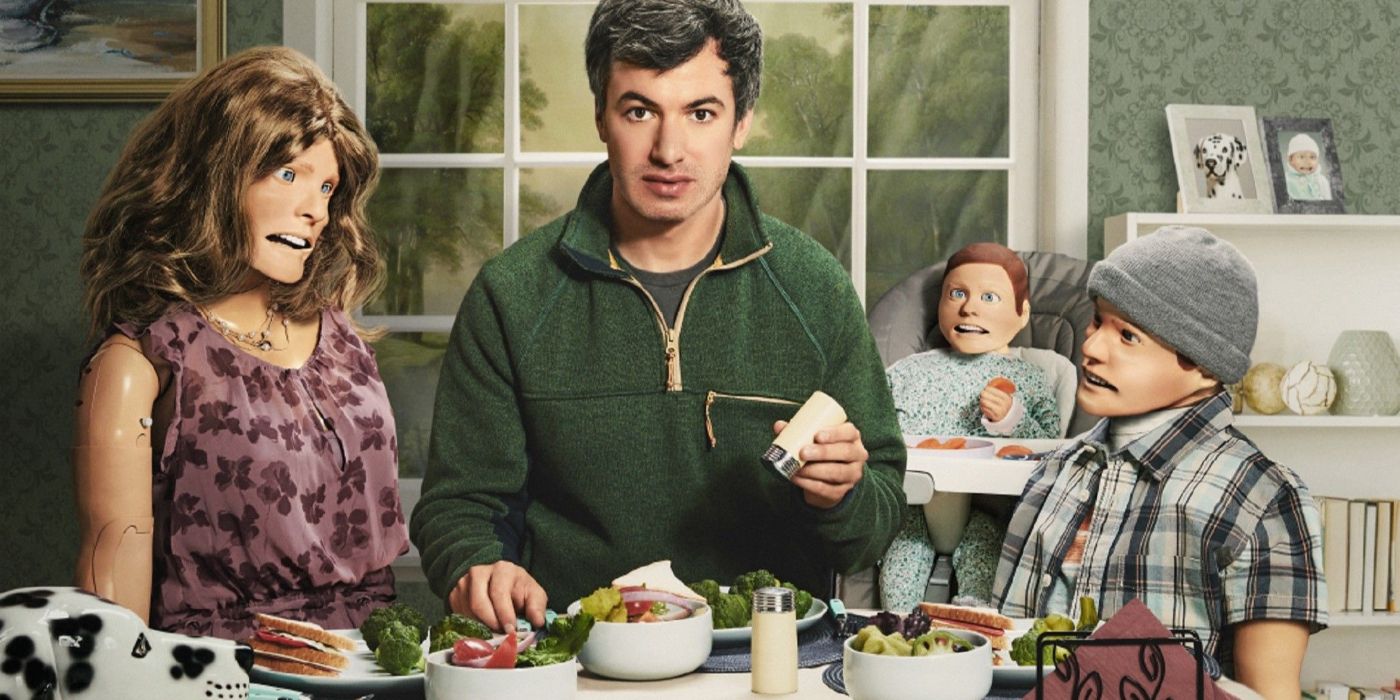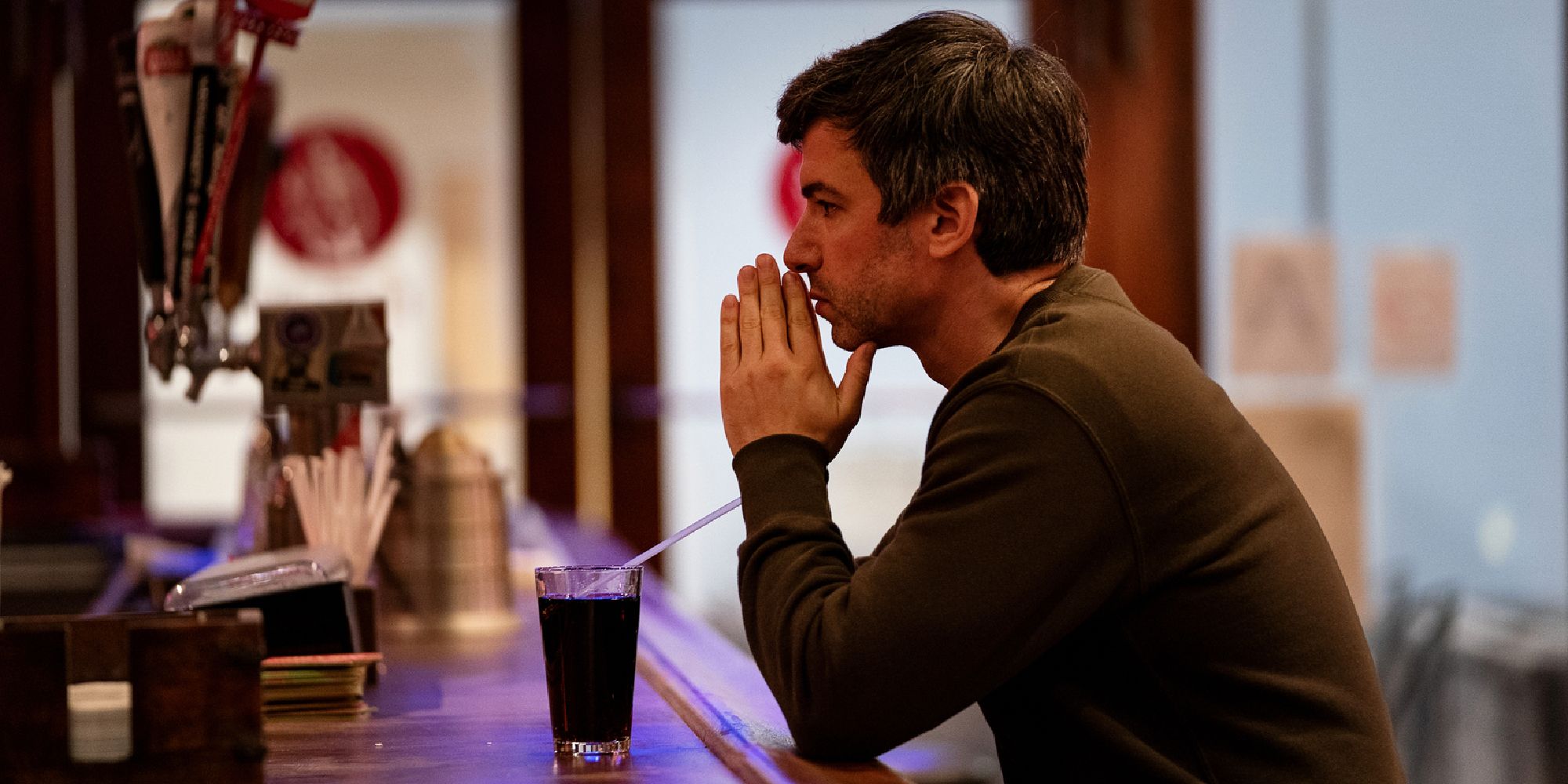The purpose of this piece isn’t to convince readers that Nathan Fielder doesn’t mess with people. That would be a nearly pointless endeavor considering the years of well-documented proof of him doing just that. After all, Fielder is best known for the Comedy Central series Nathan for You, in which he visits struggling small businesses with ridiculous plans that, more often than not, don’t actually do said businesses any good (at least, not in the way the owners of these businesses probably signed up for).
It’s easy, maybe, given all we’ve seen Fielder do, to write him off as not a particularly kind person. The word manipulative is one that’s been levied at him occasionally, and this take tends to represent a rather uncharitable view of the comedian, his methods, and his work. But is “messing with” people inherently uncharitable? Does it always mask superiority and disdain, or can it be a lighthearted way to communicate and process things we feel and maybe don’t fully understand? It’s as difficult to deny Fielder’s genuine interest in people as it is to deny that he does mess with his subjects, and these two facts are not at all mutually exclusive.
Take any reality television series — or any psychological, sociological, or anthropological experiment — and there will be manipulations all over the place. The creators of these projects have to do a certain amount of orchestrating, with some kind of end result in line. Since Fielder’s most recent project, The Rehearsal, now airing weekly on HBO Max, falls somewhere between reality TV and social experiment, his path also relies on a structure that helps execute the vision for the series.
What creates an occasionally intense viewing experience is the discomfort Fielder’s methods inspire in us. As social creatures, most of us balk at situations that fall outside the realm of what is comfortable and acceptable when other people are involved. Fielder finds those moments and holds them like a breath. It isn’t unethical, just uncomfortable — but for many viewers, there is delight to be found in these moments, as well as surprisingly educational, or even occasionally emotional, revelations to be had.
Throughout much of Nathan for You, Fielder’s onscreen persona would give glimpses of vulnerability. Never was this conveyed more strongly than in "Finding Frances," the series finale, where Fielder accompanies Bill Gates impressionist Bill Heath in his quest to find his long-lost love. Where other episodes of Nathan for You focused on putting people in funny and interesting situations under the guise of improving their businesses, the finale was something different, not quite like anything we’d seen Fielder do before. “Finding Frances” takes the loneliness and the desire for connection that Fielder teases throughout Nathan for You and brings it front and center. There are the classic Fielder tactics at play, of course; a drawing rendered of Frances looks like it was done by a child, a fake movie sequel is staged so Fielder and Bill can get into Frances’s old high school, and at one point, Fielder convinces Bill to give a well-rehearsed performance at a high school reunion. Through it all, he remains committed to Bill’s wants in this journey, while reflecting on his own loneliness through a hilarious and slightly painful relationship with an escort.
With The Rehearsal, Fielder has gone from comedy to a nearly full-blown social experiment. The new series is hilarious, for sure, but also imbued with more of a reflective melancholy than anything Fielder has done before. He finds willing participants who are struggling with their next step — so far that’s included a man who is nervous to tell his friend about a lie, a woman who wants to have children, and a man who wants to ask his brother for access to his inheritance. The process is elaborate and thorough, and Fielder appears to listen closely to participants in order to let the rehearsals be as accurate as possible to their experiences and goals.
There’s something incredibly sensitive about the subject matter Fielder is dealing with this time around, and he makes no attempt to ignore that. Anxiety about tough conversations can be powerful, and a rehearsal where Fielder is told by an actor playing one of his participants that he is a horrible, manipulative person shows not only Fielder’s own awareness and fears, but is a representation of that anxiety that offers catharsis through humor. Fielder isn’t making fun of people who feel anxious about social interactions; instead, he’s acknowledging how many of us feel some version of this at times, and allowing us to laugh at the idea that we can really predict what will happen, as well as at just how bad we let our worst-case-scenarios get in our heads.
Fielder’s goal in putting people in these increasingly strange situations is less about humiliating anyone, and more about two things: a genuine interest in people, and a fascination with the oddities in life, manipulated circumstances notwithstanding. Sure, real life doesn’t contain elaborate rehearsals. We don’t often get to give things that are difficult or scary a trial run until we feel like we have enough hypothetical questions answered that we can handle it. But the desire to do these things does. Fielder’s elaborate sets and processes in The Rehearsal don’t manipulate reality, they heighten it. Fielder builds mazes and then follows his participants through them with humor, fascination, and something surprisingly close to empathy.
There’s a common misconception that to laugh at something is to not take it seriously. Laughing at the real people and feelings Fielder encounters can feel cynical, but it isn’t — because he isn’t. Life is beautiful and sad and real, but it’s also funny and strange and uncomfortable. These things don’t (and maybe can’t) exist without each other. The Rehearsal inhabits the intersection between feelings and ideas that seem to exist in opposition to each other and asks us as viewers to consider all of this in a way that makes us laugh, and sometimes maybe cry a little too. Different as they are, both are good for you.



